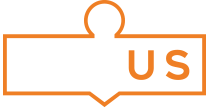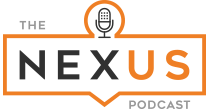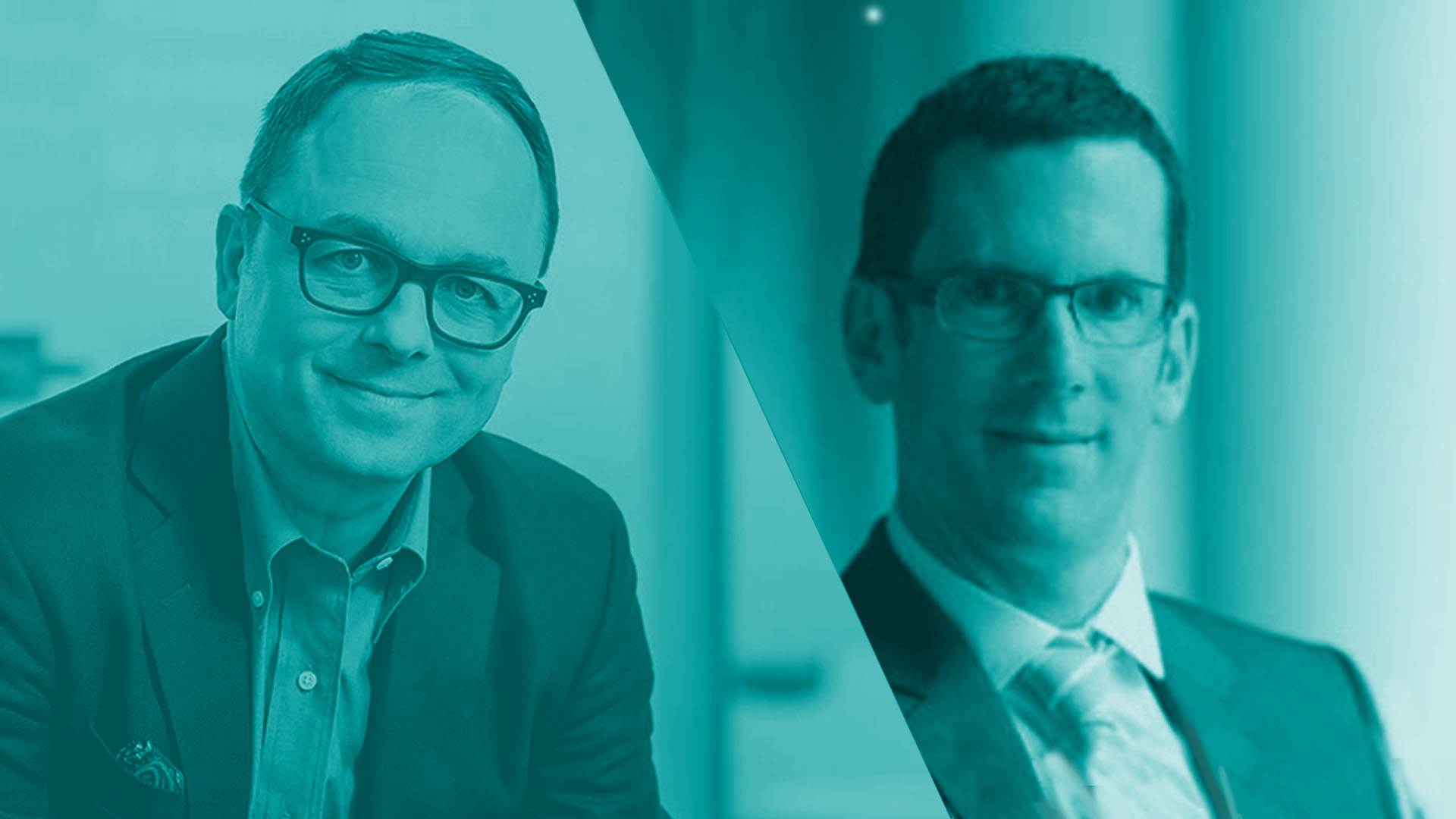What is Workplace Deviance?
Nearly all of us have that one person in a workplace who behaves like…well, like a jerk. But have we ever taken the time to ask ourselves “why is that person behaving like a jerk?”
Well, David Zweig has…in fact, it’s how he makes his living. David is organizational psychologist at the Rotman School of Management who studies “workplace deviance” or the ways in which people veer outside the boundaries of appropriate behaviour while at work. He says the problem of deviance may not be because people can be jerks, but because we have a fundamentally flawed way of looking at performance.
Transcript:
CHRIS NELSON [00:00:01] The next time you are struggling to find ways to avoid work while still looking busy, allow me to suggest going to Reddit. Now you’re probably thinking, well, everyone goes to Reddit when they’re trying to avoid work; but if you’re trying to avoid work and look busy, there are some subreddits that could help. The first is a thread that starts with a simple question: office workers of Reddit, what’s your go-to activity to look busy when you have nothing to do? There, you’ll find such useful tips as ‘carrying supplies around the office’, or ‘open an Excel spreadsheet and start randomly typing numbers into it’, or my personal favorite, ‘pace a lot with a scowl on your face’. Of course, in our new work from home reality, these tips may no longer be relevant for some of us, which is why you might find another Reddit forum to be rather handy- it’s called, rather simply, ‘Am I The A******’. Basically, it’s a place where millions of people regularly crowdsource advice on etiquette, conflict resolution, and other moral dilemmas. A poster will describe a challenge or conflict they’re facing and the actions they’ve taken to address it. For example, “Am I the a****** for making my fiancee agree to a Harry Potter themed wedding?” Or here’s another, “Am I the (you know) for switching my milk in the office fridge to regular just to see if my lactose intolerant coworker is using it in their coffee?” Now, if you’re a worker looking to appear productive, there are plenty of novel ideas for you on this forum. Here’s one: a call center employee whose performance is measured by call volume described how they would cut calls off within seconds in order to trick the analytical software at the center, so it would appear they were fielding more calls than they actually were. But suppose call quotas at the center are absurdly high- in that case, are they really an a******? Are they? Really? It’s exactly that kind of question that our guest on today’s pod lives to answer. His name is David Zweig, he’s an organizational psychologist at the Rotman School of Management. And if you were to ask him, Dave would probably tell you that he has no idea if that call center employee is a, you know, but they are most certainly a deviant. David studies workplace deviance, those things people do to ostensibly thwart the core function of their business. For years, he’s been exploring the causes of workplace deviance, some of which may surprise you, as well as the possible solutions, especially in a post-COVID world, some of which employers may or may not be ready for. David joins us at the Nexus.
CHRIS NELSON [00:02:54] David, I think the first most obvious place to start is define employee deviance for us and why you choose to study it.
DAVID ZWEIG [00:03:04] Deviance can be considered any behavior that goes against the standards for appropriate behavior at work, and it can manifest in a number of different ways. Obviously, we can think about it in terms of like employee theft or abuse or undermining people. One of the things I’m studying now is knowledge hiding, where people will come to you and ask you for assistance or information, and you either play dumb or you’re very evasive about how much you share with them because you don’t want to give them too much information. Knowledge theft: so people who will take other people’s ideas and repackage them and present them as their own. Someone presenting an idea in a meeting and then two minutes later someone else presents exactly the same idea, slightly twisted, but it’s the original person’s idea and gets all the credit for it, and takes all the credit for it- that happens a lot. And other people taking ideas and running with them and then succeeding and being promoted, etc. That kind of behavior happens a lot more frequently than any of us ever believed. It’s all based on relationship and power and all these different factors that are influencing our behavior. I like to study some of the triggers that actually push people that normally wouldn’t be deviant to engage in what would be considered deviant.
CHRIS NELSON [00:04:20] And what are some of those triggers?
DAVID ZWEIG [00:04:22] There’s always going to be a certain subset of people who just are deviant, right? Who engage in this kind of behavior just because who they are. We have a constellation of personality traits that predispose them to be deviant. But then there’s everyone else who are simply responding to the situations that they’re in. And I want to try and understand how we create this cycle of deviance, and then, of course, how we can try and mitigate it.
CHRIS NELSON [00:04:47] A big source of deviance is trying to manage perceptions of your performance. How accurate am I in defining it as that?
DAVID ZWEIG [00:04:57] When I first started my research career, I was looking at employee surveillance and how being surveilled closely by your employer actually leads people to find ways to get out of that gaze of the surveillance. And ironically, what that surveillance tends to do is create even more deviance more than it’s designed to control. Really, we’re always trying to manage our perceptions. We’re always concerned about how we’re being perceived at work, and one of the things that we’re concerned about is whether or not people are perceiving us being busy and working effectively and accomplishing our goals. When performance is measured by how much time we spend at our desk or how much time we spend using an application on our computer or logged into the company’s systems, that promotes that kind of drive to do anything you can to suggest that you’re always busy and always working- that influences how we behave. There’s a whole new movement towards people analytics, and while it sounds very innocuous, we’re talking really about a new wave of surveillance that is more democratic, in a way, in that it’s being applied to everyone, regardless of your job. Being given a report of how much you interacted in a meeting and even an assessment of your facial expressions, and all of that is being used to shape your behavior. That’s really invasive and your behavior is being monitored at that level, and with that frequency.
CHRIS NELSON [00:06:22] You might be aware that we’ve been through a pandemic, I’m not sure if you heard? I’m wondering, how has this kind of behavior changed or evolved during the pandemic? Are there others that we might not know about?
DAVID ZWEIG [00:06:36] My thinking on this has really changed a little bit. I mean, COVID was like a Molotov cocktail that blew up the way we work. My concern early on is that people analytics wouldn’t really thrive in this environment because given the fact that most people who could were working from home, and that changes the dynamic between employees and their supervisors. There’s no face to face monitoring. Now, people have actually demonstrated that their productivity has remained relatively stable within the work from home environment. I’m hopeful that there’s a little more trust building that’s taken place around this new way of working, and maybe that will persist. And maybe we won’t rely upon modern surveillance techniques to ensure that people are doing what they’re supposed to be doing.
CHRIS NELSON [00:07:22] What if the employer has unrealistic expectations of their people, which compels them to engage in deviant behavior, if only to try and meet those expectations?
DAVID ZWEIG [00:07:34] And that is not an uncommon occurrence if you think about the whole idea around like hustle culture, right? That’s nonsense. I mean, the idea you can tell people upfront that you know you’re expected to work really really long hours with limited resources, and we expect you to sacrifice your work/life balance. It’s kind of ridiculous. I mean, you’re setting it up for people to engage in behaviors, trying to meet unrealistic goals, and to get there along the way they’re going to do whatever it takes. And so creating an environment like that, you’re asking for people to, you know, either find shortcuts or do things in ways that they shouldn’t be doing them in order to try and accomplish this unrealistic goal.
CHRIS NELSON [00:08:14] What does employee deviance say about our understanding around performance?
DAVID ZWEIG [00:08:21] If you think about it as a thermostat: you want to keep it at a constant temperature, and if there’s any deviation from that constant temperature you apply force or some sort of action to get it back to where it’s supposed to be. Now, if we think about job performance like that, we’re going to adopt techniques and tools to make sure that everything remains stable- but that’s not the way people work. We have to think about job performance a little bit differently. COVID has given us a catalyst to do so, and rethink how we assess job performance and what we believe job performance should be. Maybe a little bit less focus on process and more on outcome itself, and making sure that the metrics that we’re using are appropriate to capture what the outcome is and not so much the process.
CHRIS NELSON [00:09:07] Now you see, that’s interesting because I’m pretty certain there’s probably some people listening who would think that prioritizing the result over the process would invite more deviance, not less, because some people may choose to abandon good judgment or just behaving like a decent human being in the workplace to get that result. What would you say to them?
[00:09:28] Right. I mean, anytime you make a change in what is going to be rewarded in terms of behavior or measured, you know, people respond to that, and you’ve got to anticipate how they’re going to respond. So if you’re going to change your performance metric, you need to anticipate, well, what does that mean in terms of how everyone is going to respond to this change? Is it going to reward certain behaviors you want? Or is it going to start disincentivizing or even punishing behaviors that you want to try and promote? So you really got to think carefully about what you’re doing. If you’re saying to someone, “well it doesn’t matter how you got there, it’s that you got there,” right? And then you’ve got to make sure that they’re not taking that as, “well, it doesn’t matter what I do as long as the outcome is what they want,” and that may not necessarily be the most effective thing. So you’ve really got to think about what are you promoting, and what kind of behaviors do you want to try and get people to engage in? And then reward accordingly.CHRIS NELSON [00:10:25] What you’re talking about is really retooling our brains to no longer think of presence and productivity as the same thing, but mutually exclusive.
DAVID ZWEIG [00:10:36] I think it is, and I recognize in saying that it’s very very difficult to do. We’ve been programed to think of presence as being critical to performance. We’re really talking about changing a mindset, changing a culture even. But we’ve been given a gift, in a way, through COVID. Usually when we’re trying to change a culture or trying to change the way that we do things around here, it takes some sort of external threat. It takes some sort of shock to the system to force our evolution. And we’ve had it, so let’s capitalize it and try and, you know, make some positive changes.
CHRIS NELSON [00:11:15] Do we even really want to think of employee deviants as necessarily a bad thing? I’m wondering if perhaps maybe an opportunity to behave a little punk rock in the workplace doesn’t actually sort of help people sometimes perform better? Have you seen that?
DAVID ZWEIG [00:11:32] I think what you’re talking about is people who are more prone to maybe bending the rules to accomplish their goals or who are engaging in a different way of doing things or thinking about things as long as they’re not crossing the line between what is harmful to others. Right? That’s really a line you don’t want to cross. If we can stay on the right side of that line and maybe push the boundaries a little around how we do our work or how our work gets done, I think that’s OK. You have to build up some credibility before you can do that. You got to develop these idiosyncrasy credits that let you behave a little bit differently than others. But if you have that and your efforts are for the common good, they’re not your own benefit, that’s OK.
CHRIS NELSON [00:12:14] David, I’m thinking about people leaders, ones who might be listening to you talking right now, who also happen to be closest to it, who live among the deviants, you might say. In light of your comments around rethinking performance, what should they be doing? How should they be adjusting their behaviors and thinking around deviance?
DAVID ZWEIG [00:12:35] Leadership is not a one size fits all kind of proposition. Leadership is really about understanding what each one of your subordinates needs from you and also understanding the environment that they’re working at. We have to look at every one of the people who report to us individually and say, OK, how autonomous can they be? Are they able to work without a lot of control or monitoring or my input? Can they just be trusted to do the job and get everything done well? Or do they need more of that control and monitoring? And we have to adjust our behavior accordingly. And so leadership is certainly not easy, and it’s not a one size fits all. Most people want more autonomy and give them more freedom, which allows them to excel.
CHRIS NELSON [00:13:21] David, I think what you do is fascinating. I would love to audit one of your classes. Thank you for making the time to chat with us.
DAVID ZWEIG [00:13:29] Absolutely. It was my pleasure.
CHRIS NELSON [00:13:33] Is your workplace rife with deviance? Could it be time to overhaul your performance culture? If that’s the case, then let Nexus help. For over two decades, Nexus has been helping organizations with industry leading performance strategies and solutions, and we can do the same for you. Find us at Nexus Communications dot com. That’s N-E-X-U-S communications dot com. The Nexus is produced by Alexa Pavao with editing and sound design by Justin Moy. I’m Chris Nelson. Thanks for listening.









